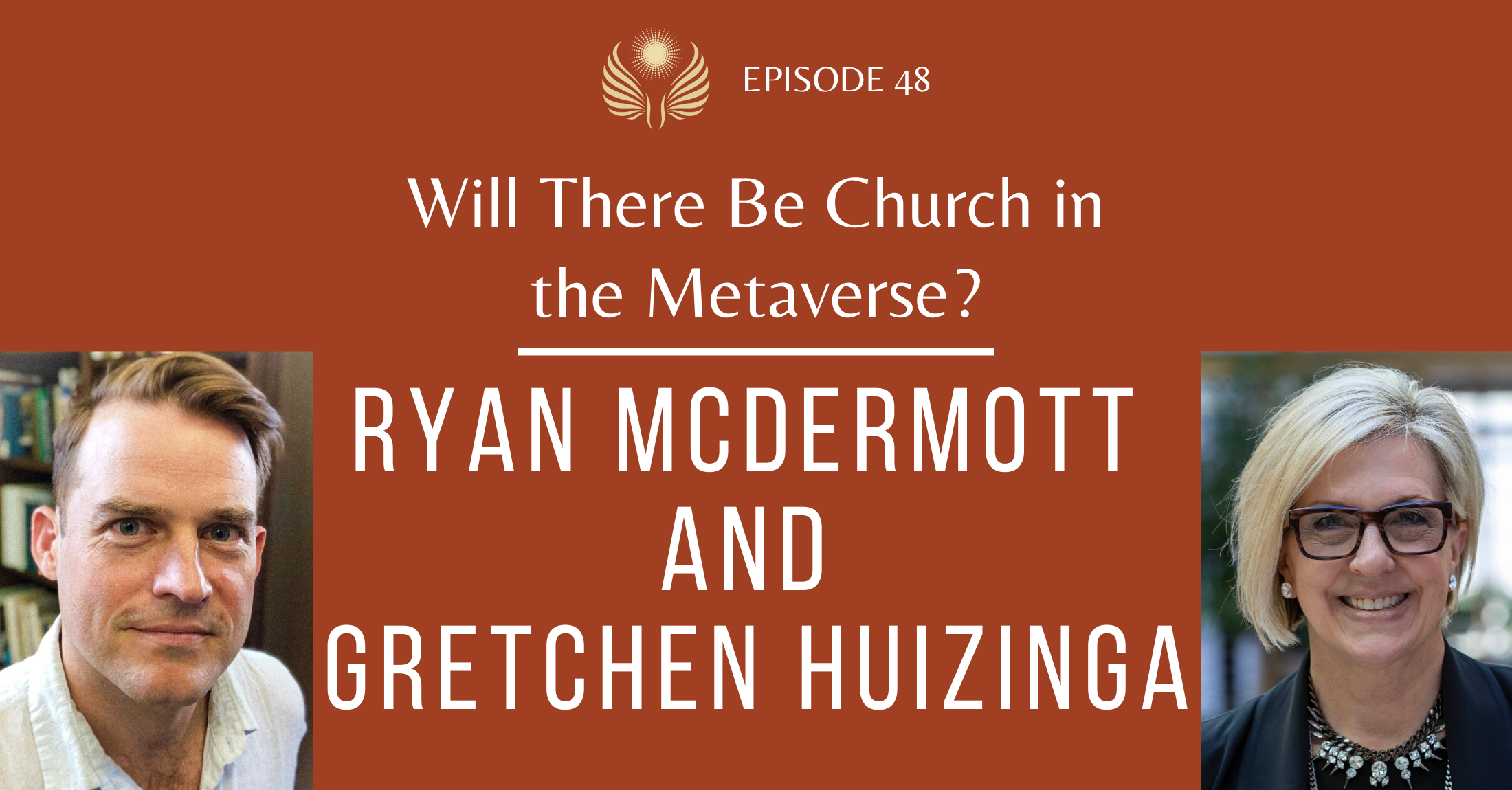Join Ryan and Gretchen as they interview each other and explore a variety of topics together: from digital wisdom and genealogy, memory and wonder at the mystery of creation, incorrupt bodies and corrupt code, and the Impossible Burger.
“I think there already is church in the metaverse. If there are people and Christians and God and the Holy Spirit, there's Church, capital C. “
For some, the appeal of the metaverse is that it offers a universe that’s fully comprehensible
“Do I really need to know everything? Isn't there part of life that's the mystery of that tree and not fully comprehending it?”
“Ultimately only God can fully comprehend any of the phenomena that he created, and that is the mystery of created life.”
Gretchen’s project on digital wisdom is “a qualitative interrogation of the Christian voice in the ethical artificial intelligence conversation”
Most concerns about AI’s potential and dangers fall along political lines; there’s a lack of voices of faith in the conversation
Ethics rests on the person, and on organizations composed of persons, either designers or users
“If you get a powerful tool, it's going to be attractive to a lot of different kinds of people, including what we call the bad actor.”
Christian theology posits that we're all the bad actor—so a Christian voice asks how to embrace the idea we’re all fallen, while also channeling tools for the good
Christian anthropology posits that humans are both body and soul; could church/religious experience in the metaverse distort that unity?
Questions around the Church and technology have also existed for televangelism, the radio, Zoom, etc
While Roman Catholics can’t be in full communion without physically receiving the Eucharist, spiritual communion allows a form of participation through desire and intention
Ryan’s project, Genealogies of Modernity: what does it mean to be modern, and what are the sources of modernity?
The main analogy for history has shifted away from story towards genealogy
Genealogy focuses on causation, not story, and thus can be understand as more scientific
However, genealogy can also manipulate and distort in self-interest (ie looking for royalty in your ancestry)
“Consensus suspicion”: a suspicion of grand narratives as explanations of history
If we’re using genealogy as the analogy for how we approach history, we need to know as much as we can about actual genealogy
Because Mormons practice baptism of the dead in order to make salvation available to those who have passed away, they excel at genealogy and practices of memory
“Baptism is very much of an individual person. It's a way of bringing that individual into a larger body [...] and the way that we are given to know individuals, according to the Christian tradition, is by their name. And the way that we bring them into the larger body is in the name of the Father and the Son and the Holy Spirit.”
“God put us in time and space; but to Him, it's nothing. He is not bound by time or space. So this idea of both collapsing and expanding, we just can't comprehend it.”
Most technologists are driven by a desire to make human life better, to increase human flourishing—to “reverse the curse”
Utilitarianism as the dominant philosophy of Silicon Valley: “to someone who doesn't pray, and doesn't believe that there's a sovereign God in charge of things [...] the default is: Well, let's do the best for the most, right? The greatest good for the greatest number of people.”
Augustine wrote that vice enters in when our loves are not rightly ordered; when we place human intelligence above the divine, we can’t find solutions for our problems
In trying to save what we view as natural, we often end up technologizing food and other things in ways that are bad for the environment, leading to a kind of hypocrisy
“[W]e try to explore areas that might be better in that idea of “I'm going to make the world a better place, I'm going to make the body healthier,” et cetera, only to find out that what God made at first is probably pretty good.”
Incorruptibility and tradition: “You look at some of the bodies that the Church is affirming to be incorrupt [...] there is a corruptibility going on there, but it is a corruptibility that's happening at a different pace, sort of happening “on its own time,” as I like to say. And in that autonomy of incorruptibility that these bodies have, we see a witness to the way that traditions can also change, corrupt, and be witnesses themselves.”
“You're never going to be able to just tell one particular story about history, change some of the bad ideas or some of the bad conditions, and fix it all. [...] It's that sustained ethical reflection that's going to be the way forward. It's not going to be an answer; it's not going to be a solution. It's going to be a habit of being in the world.”
Links:
How to Go to Church in the Metaverse
What Role Should Christians Take in Shaping AI? with Bob Marks
Public Mass Ban in Italy Leads to New Focus on Spiritual Communion
A Short History and Theology of Spiritual Communion
Mormon Baptism for the Dead: History and Explanation of an Unusual Ritual
The Impossible Burger: Inside the Strange Science of the Fake Meat that “Bleeds”

